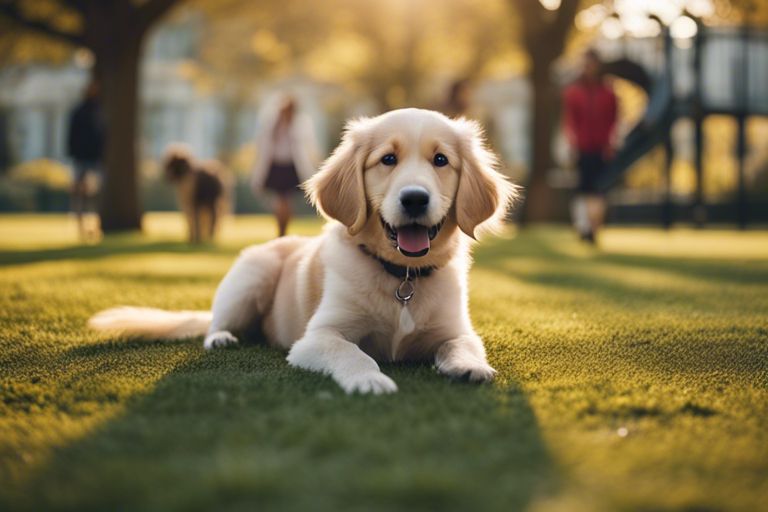
How to Socialize Your Puppy - A Step-by-Step Guide
Over the years, socializing your puppy has proven to be crucial in shaping a well-behaved and confident adult dog. Early exposure to various people, animals, environments, and situations can prevent behavioral issues such as fear and aggression. In this comprehensive guide, we will take you through step-by-step on how to properly socialize your puppy to set them up for a happy and well-adjusted life. From introducing them to different stimuli to positive reinforcement training, we'll cover everything you need to know to give your puppy the best start in life.
Preparing to Socialize Your Puppy
The key to successful puppy socialization is careful preparation. Before submerging into socializing your furry friend, it's vital to set the stage for a positive experience that will help your puppy grow into a well-adjusted adult dog.
Essential Supplies for Socialization
Socialize your puppy with the right tools. Some vital supplies for socialization include a collar and leash, treats, toys, and puppy pads. These items will help you effectively manage your puppy during socialization activities and reinforce positive behavior.
Factors Affecting Puppy Socialization
Factors that can influence your puppy's socialization process include early experiences, breed, environment, and owner's behavior. Any changes in these factors can impact your puppy's social development significantly.
- Early experiences: Positive early experiences can help build your puppy's confidence and social skills.
- Breed: Some breeds may be more predisposed to certain behaviors, affecting their socialization needs.
- Environment: A safe and enriched environment can support your puppy's socialization progress.
- Owner's behavior: Consistent and positive interactions from the owner are crucial for successful socialization.
For instance, early socialization is critical in preventing behavioral issues like fear and aggression. Introducing your puppy to a variety of people, animals, and environments during the critical socialization window (usually up to 16 weeks of age) can help them become more adaptable and well-rounded adults. Any gaps or negative experiences during this period can have lasting effects on your dog's behavior, so it's vital to prioritize socialization efforts early on.
How-To: The Basics of Puppy Socialization
Creating a Positive Environment
Some puppies may feel anxious when introduced to new environments, so it's imperative to create a positive and safe space for them to explore. An environment that is free from loud noises, harsh smells, and overwhelming stimuli will help your puppy feel more at ease and willing to socialize.
Introducing New People and Pets
Even the most outgoing puppies can feel overwhelmed by new people and pets. When introducing your puppy to new individuals or animals, start off slowly and in a controlled environment. Allow your puppy to approach at their own pace, and always supervise the interactions closely.
People who interact with your puppy should be gentle, patient, and respectful of boundaries. Avoid introducing your puppy to aggressive or overly excitable pets, as this can lead to negative experiences. Always prioritize your puppy's safety and well-being above all else.
Advanced Socialization Techniques
- Tips for Public Socialization
- Consistency is key in exposing your puppy to various environments.
- Positive reinforcement such as treats or praise can help reinforce good behavior.
- Start slow and gradually increase the exposure to new situations.
- Observe your puppy's body language for signs of stress or fear.
Dealing with Negative Experiences
- Techniques for Overcoming Negative Experiences
The best way to handle negative experiences is to remain calm and redirect your puppy's focus onto something positive. If your puppy has a bad encounter, avoid comforting them in a way that reinforces the fear. Instead, offer reassurance in a calm manner and remove them from the situation if needed. Professional assistance may be necessary if your puppy consistently reacts negatively in certain situations.
Maintaining Socialization
Keeping Up with Social Skills
Once again, congratulations on successfully socializing your puppy! However, the work does not end here. It's crucial to keep up with your puppy's social skills to prevent regression. Regular social interactions with other dogs, people, and new environments will help reinforce the positive behaviors you've worked so hard to instill in your pup. Encourage continued socialization throughout your puppy's life to ensure they remain well-adjusted and friendly.
Recognizing and Correcting Regression
Socialization is an ongoing process, and it's necessary to monitor your puppy for any signs of regression. If your puppy starts showing fear, aggression, or avoidance towards people or other dogs, it's crucial to address the issue promptly. Ignoring regression can lead to long-term behavior problems that can be challenging to correct. Take the time to evaluate the situation and seek guidance from a professional trainer if needed.
For instance, if your once-friendly puppy starts growling or snapping at strangers, it's necessary to intervene immediately. Ignoring such behavior can escalate into more serious aggression. Revisit socialization exercises, provide positive reinforcement for good behavior, and consider consulting a professional trainer to develop a plan to address the regression effectively.
Final Words
On the whole, socializing your puppy is a crucial process that lays the foundation for a well-adjusted and confident adult dog. By following this step-by-step guide, you can ensure that your puppy has positive interactions with people, other animals, and different environments. Remember to start socialization early, be patient and consistent, and always prioritize your puppy's safety and well-being. With dedication and effort, you can help your puppy develop into a well-socialized and happy companion for years to come.

